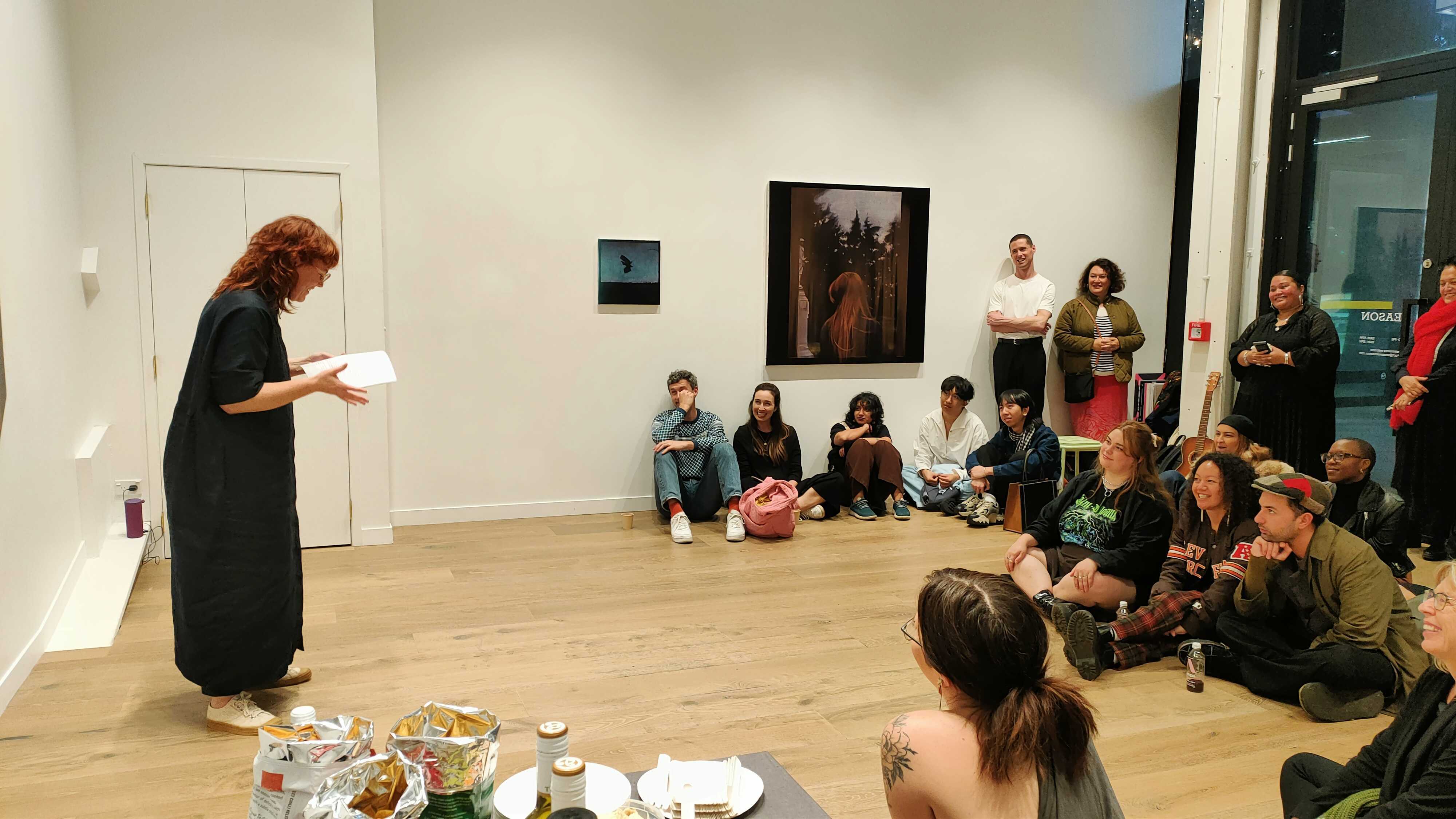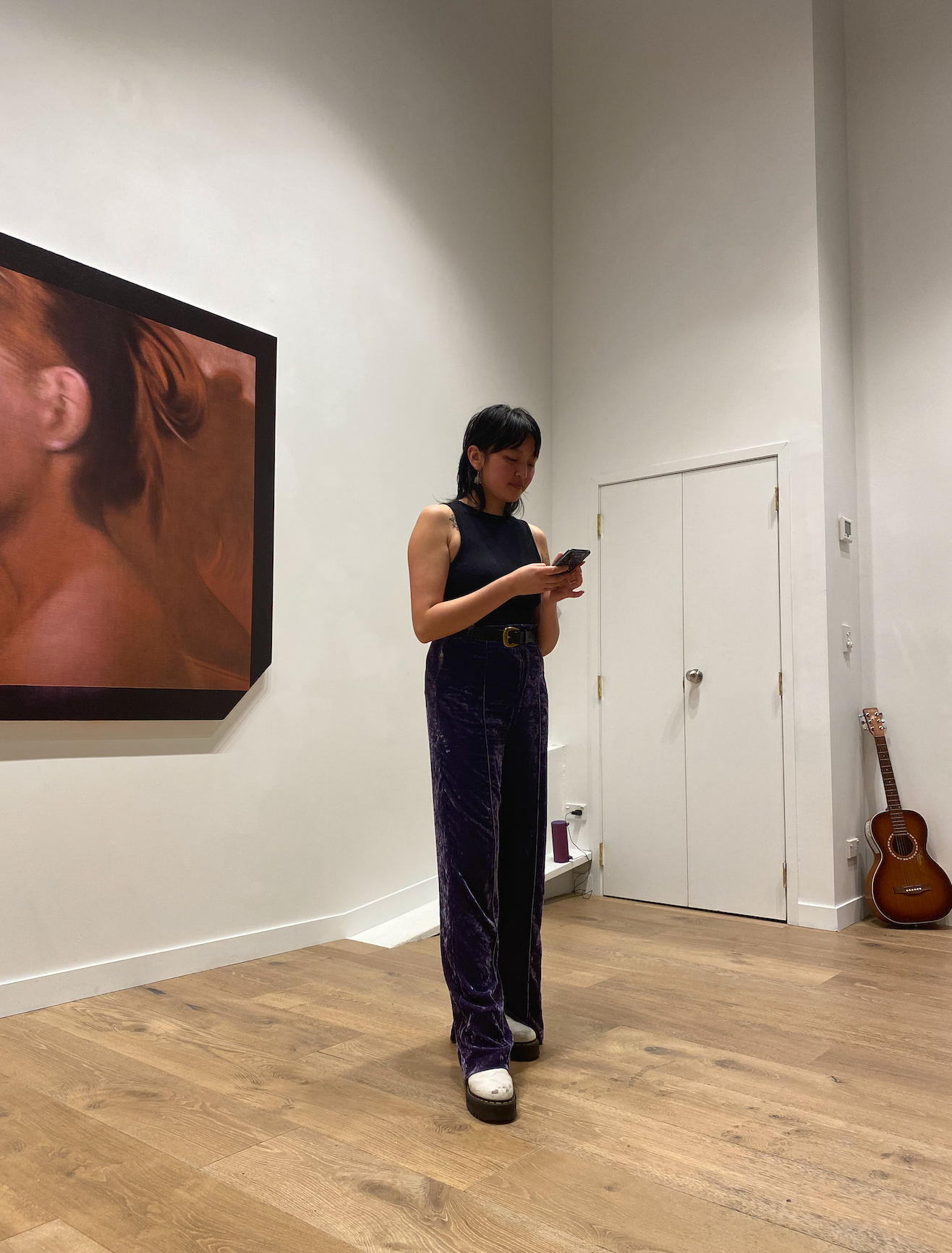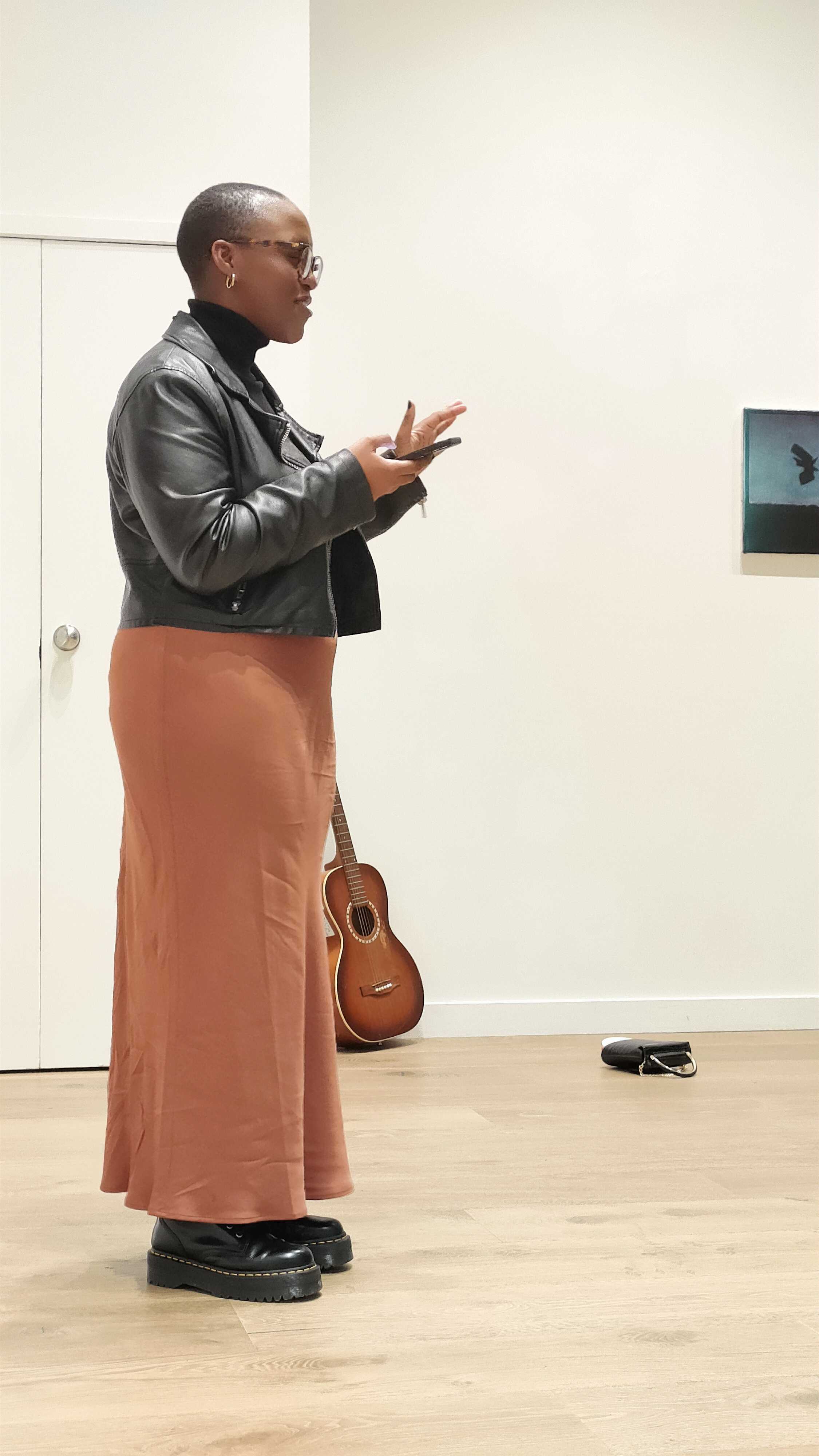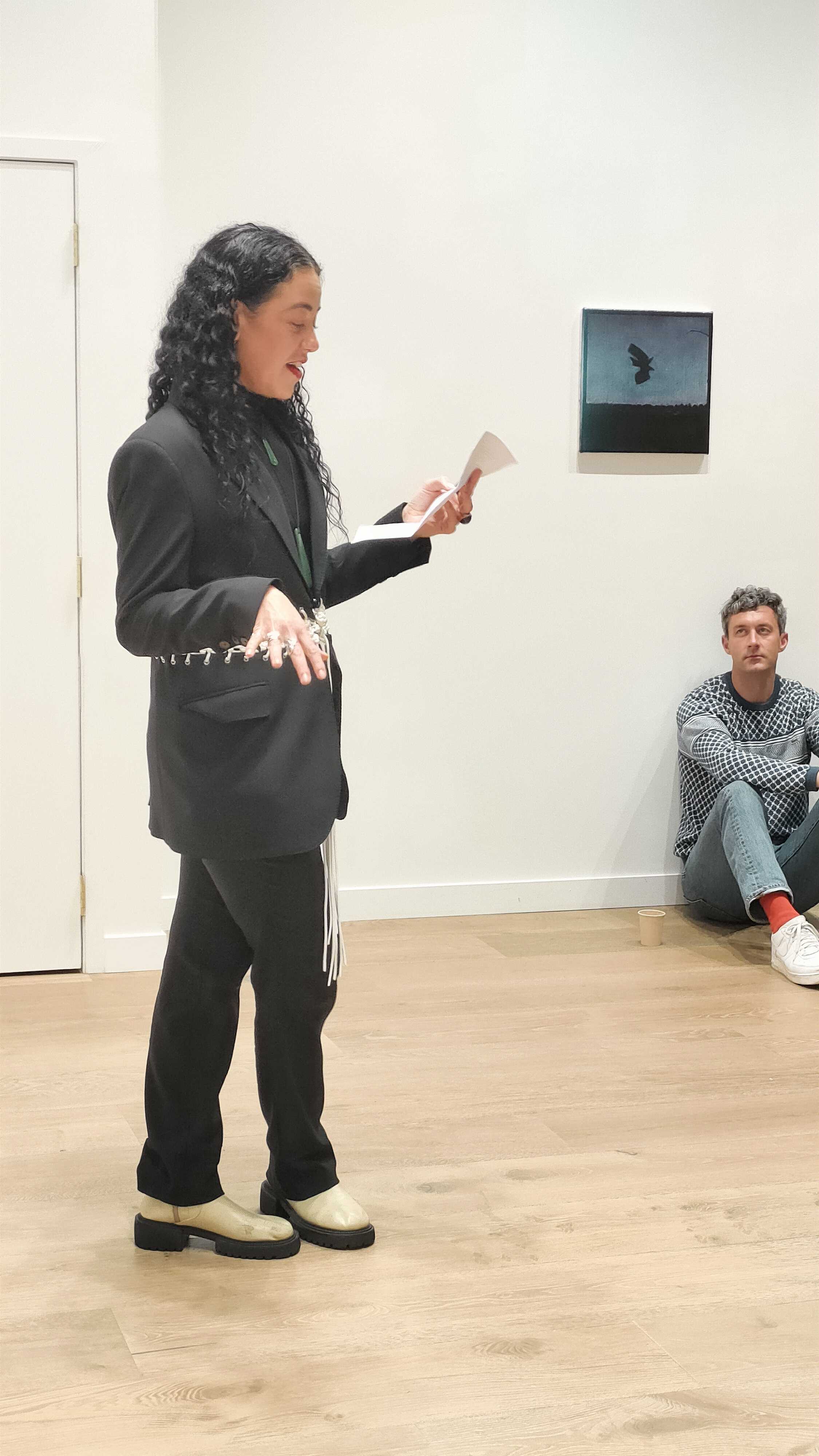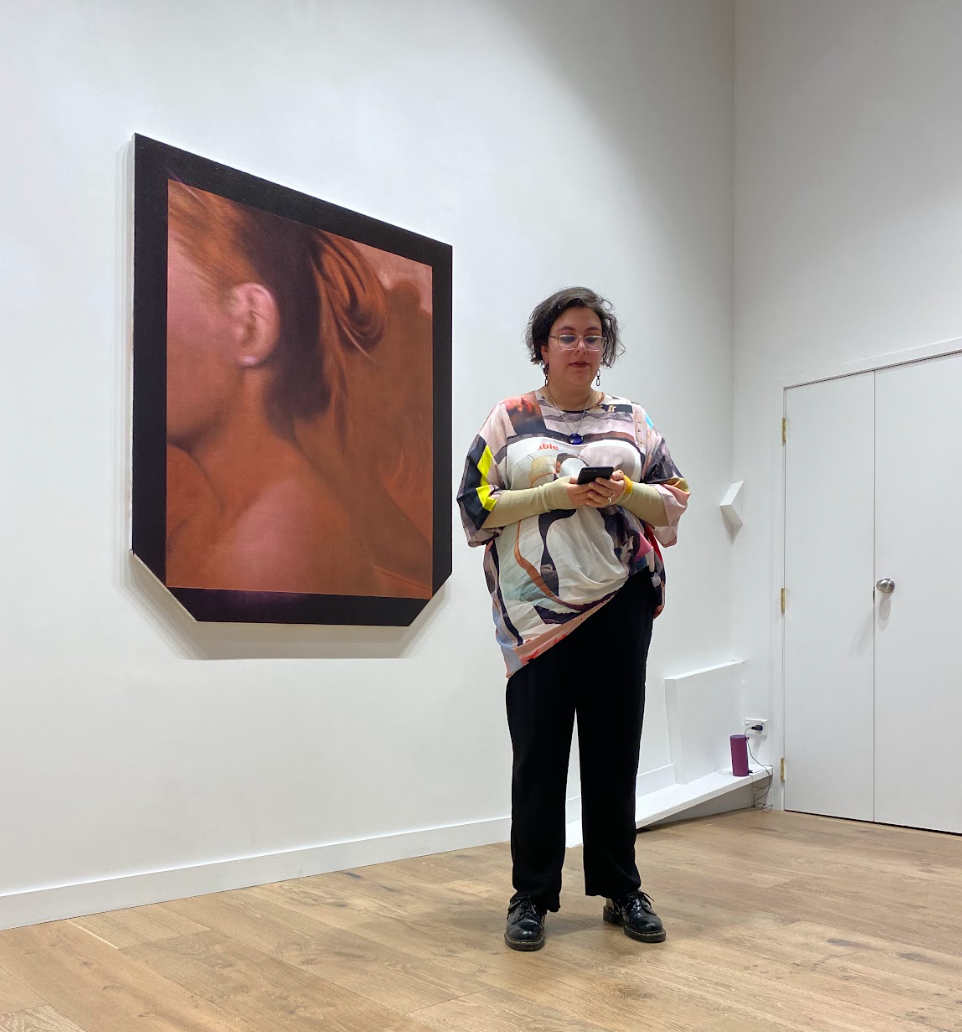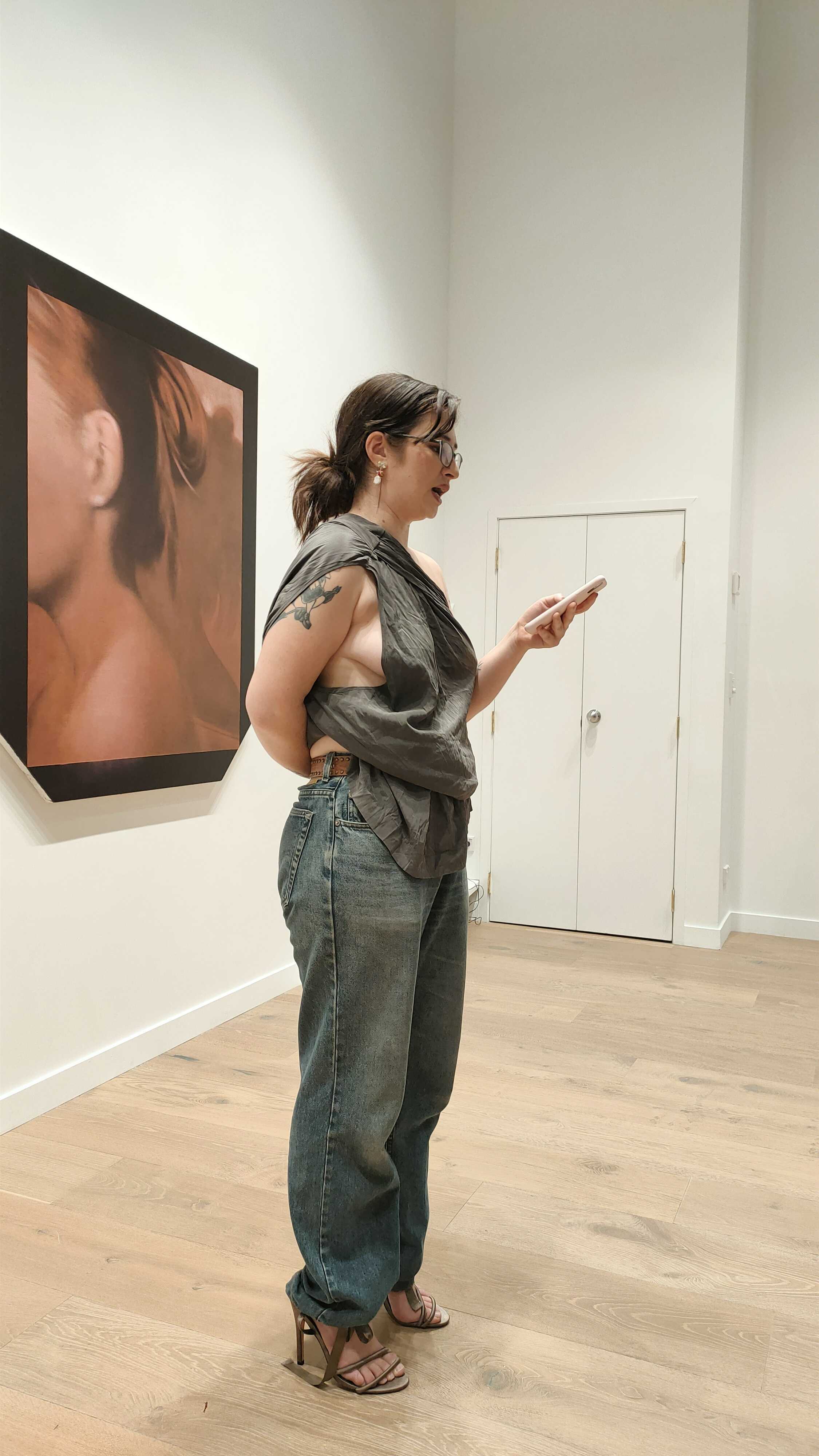Celebrating Pantograph: A Smorgasbord of Sexy Launch Speeches
Our young, wild and free arts journal turns 13 this year, and we've just launched a brand new membership programme to keep our engines at optimum speed. To celebrate our birthday and the launch of Pantograph Pals, we invited near and dear friends to kōrero about our journal, at a live launch event held at Season gallery. Below are some gorgeous snippets of whakaaro, for those who missed the revelry.
In June we hosted the live launch event of Pantograph Pals at Season gallery, revisiting the history and inception of Pantograph Punch as a journal, the involvement of so many thousands of hands along the way, and what we’re aspiring towards with the launch of our hot new crowd-funding memberships programme (sign up here!). It also doubled up as a cute wee celebration of our 13th birthday!
Below are some of the whakaaro shared from the lineup of speakers: Matt Harnett and Joe Nunweek, Vira Paky, Delilah Te Aōrere Pārore Southon, Kate Prior, Divyaa Kumar, Vanessa Mei and Simonne Likio.
Nuanzhi Zheng, reading on behalf of Matt Harnett and Joe Nunweek. Photo by Vanessa Mei
Matt Harnett and Joe Nunweek
Co-Founders (alongside Rosabel Tan)
It is absolutely a joy to see The Pantograph Punch hitting a rare lucky 13th. In the time-blink nature of web publications it’s increasingly difficult for anything of modest scale and support – particularly Aotearoa-side – that predates the mid-2010s and isn’t mired in inertia, day-job responsibilities or abrupt cuts to funding, to continue existing.
It’s also good to see that it’s transcended its kind of twee American literary-site model because that was a major influence when us three – Matt, Joe and Rosabel – got stuck into doing it around 2011 or so. The site started as a repository and reposting of strange good things we found on the internet. We wanted quick-fire grabs of poetry, film stills, passages, music, whatever grabbed us. The cultural cringe was really strong back then and the cultural allure of literary or contemporary heritages of, like, New York was very strong. So it was a particularly bookish Tumblr blog where way too often the influence was looking outward. Then snatches of satire and longer-form criticism started to creep in, which were interested in what was going on in our own cultural, political and arts ecosystems, mainly as a way of expressing that horrible mid-20s ennui of when you’ve got something to say and nowhere to say it.
The first years of PP proper were all over the place (said with aroha). You would get pointed local art crit one day, then an essay on our shit regressive tax system by someone doing their master’s in it, someone’s paean to how much they loved Frank Ocean, then a clutch of NZIFF reviews, then someone’s personal essay on grief, living with panic attacks or building a boat. I’m a big fan of at-odds interests and the experience of reading a website being a little bit like the pre-algorithmic internet, myself, but it’s blinkered and untenable to say that Pantograph is anything but improved in its current form. It’s sharpened its focus big-time into NZ long- and short-form arts criticism and celebration, it’s become a big and diverse tent for writers and producers reflecting Aotearoa now, with the mahi of finding, nurturing and growing talent remaining just as it was. More than anything, it’s remained relentlessly eyes-on-the-prize for the idea that what we are creating and doing in our backyard has inherent worth and deserves some kind of online record to explore what’s unfolding.This is something that will only become even more important when the next wave of cultural historians and creators emerges and wants a real-time archive of the 2010s and 2020s, and what was happening.
It is hard to believe that this site took up such a chunk of our lives and is still standing proud and true. It took us the longest time to be able to convince ourselves that we deserved to be paid anything, for either writing or editing – it was a labour of love. Looking at the site now, it still is.
Vira Paky. Photo by Nuanzhi Zheng
Vira Paky
Contributing Writer, Basement Theatre Programme Coordinator,
Pantograph Pal
Looking to the future of arts publishing, I am hopeful. Despite a lot of things, it is my faith and hope that propels me to get my shit done and not just relish in despair and apathy. I see something bright and warm for myself and my people. Now as an all-round creative and an activist, people often ask me about the worst type of pushback I have experienced in the pursuit of sharing my voice and my story. And without fail, for me, the worst thing in the world is to not be thought of at all.
Racism, discrimination and white supremacy are all expected consequences from a world built upon capitalism and colonisation. Honestly, I have been prepared for racists since the day I was born, but nothing really prepared me for a world that simply does not want to even acknowledge my existence. Even when I make it to the rooms with creative power and influence, I am still only spoken of and not really spoken to. Being a Black creative in New Zealand is a weird experience because I can look out into the wider world and see my creative kin thriving in their community storytelling overseas, then look around my home and see my creative kin just struggling to feel like they even belong here.
When I think of the future of arts publishing, I pray my community and I will feel seen and significant. That we can influence the narrative. That we matter here, too.
Delilah Te Āorere Pārore Southon. Photo by Nuanzhi Zheng.
Delilah Te Aōrere Pārore Southon
Former Kaimahi, Contributing Writer, Pantograph Pal
Storytelling and writing is a taonga. We consume so much nowadays, that I feel like we have to ensure that we fight to hold on to stories from the past. We can lean on them, or lean into them, as they help inform our present, and inspire our future.
Arts publishing is about connectedness. And without arts publishing, we can’t continue to strive for bigger and better. Without visibility of voices, and the way they connect us, we get lost and our stories get lost. There are so many stories across the motu that need nourishing, and with kaupapa like this real change has the potential to actually happen.
You never know who’s reading your words, and who’s engulfing the essence of your work, and I believe that’s one of the beautiful parts of writing and publishing – places like Pantograph hold space for whakaaro to reach people who may need it.
Pantograph Punch is a place for the misfits, the rogue ideas, the curious souls who are searching for something bigger than themselves, the assholes, the critics, the people who want to chuck it all on the page and garner a sense of their own reality, it’s a place for niche understandings of the world, being different, and the true happenings of the arts, it’s a place for Māori, it’s a place for uniqueness and being yourself, and it’s a place to be seen through words while you create worlds.
Kate Prior. Photo by Nuanzhi Zheng.
Kate Prior
Former Kaimahi, Contributing Writer, Pantograph Pal
Rosabel Tan and I met in the comments section of The Pantograph Punch in 2016. A pretty cool meet cute. I think I took issue with something in her interview with Last Tapes Theatre Company. I can’t remember what it was, but it definitely would have been some tiny inconsequential thing that only someone who’d recently spent their life’s savings from their PA job on a Master of Dramaturgy in Melbourne, and was desperately trying to apply it to everything back home, would pick up on. Rosabel was, of course, gracious, and we absolutely kicked it off in the comments, and then I went on to become Theatre Editor in 2016.
The fact that The Pantograph Punch even existed in 2016 was hugely comforting to me and felt important. I’d just returned from Melbourne with a craving for the critical rigour I had found there, and The Pantograph Punch stacked up with the best journals across the ditch. For theatre, at least, it really was the only space in Aotearoa with a national focus on producing thoughtful, in-depth criticism, where theatre makers could feel that their work was taken seriously.
The interesting thing about The Pantograph Punch is it straddles being an arts organisation and a media organisation. Each has their own kryptonite. Arts organisations that are recurrently funded are in danger of ossifying. Across the globe, media organisations in hostile environments are often forced to rapaciously chase any form of capital in order to survive, either becoming infested with ads or being bought out by larger companies, sometimes losing the energy that created them.
What I like about The Pantograph Punch is that something in its essence pushes against both these tendencies. It remains mercurial, ephemeral, deeply collaborative, firmly ad-free, the size that feels right for itself, and it never stops reflecting and changing. Some would say that’s slippery and dangerous. I reckon it’s what more arts organisations should be.
Divyaa Kumar. Photo by Vanessa Mei.
Divyaa Kumar
Contributing Writer, Pantograph Pal
The Pantograph team had an idea. And that idea became a seed, which became a seedling, which built roots in the hearts and minds of those who care for this little corner of Aotearoa arts. However, it is only with all of us together, taking turns to water this garden, that this seedling will progress into a fully fruiting and established plant, able to shelter everything else that might grow in its underbush.
We cannot bring Pantograph from the raging depths of her teen years into her 20s without the decisive act of doing so. You can do as I did, and shoot your shot into the void of an open submissions email, and end up with a delightful half-career of freelance writing and thinking and devouring art, or you don’t, and you end up with nothing but some half-baked ideas that were never workshopped in a live Google doc with an editor in Kirikiriroa, whilst you wrote about Persian rugs in Taranaki.
I’ve talked to folks in publishing, online and in print, editors, book sellers, zinesters, journalists and poets, and nobody really knows what the landscape might look like in two months, let alone in a decade. We’re in a transitional world right now, because the nature of distribution is changing, the models of creation are changing, the way we get our work out into the world, keep a roof over our head and buy sandwiches, are all changing.
The way we share our work has changed so much over the last year.
This is, on one hand, deeply intimidating.
On the other, it’s incredibly, immensely liberating.
The rules are breaking down. The gatekeepers have left their posts.
Nobody knows what the new rules are – this is for us to define, and then break. So make sure you enjoy it!
Simonne Likio
Senior Advisor – Investment Services at Creative New Zealand, Pantograph Pal
For over 15 years, I’ve worked within government organisations who’ve had the privilege and space to reflect on notions of crisis, precarity and imagination in relation to the state of the social welfare and the arts sectors in Aotearoa. The last few years have been hard on our creative communities. During disruptions, global volatility and closed borders, our literature whanaunga were some of those sorely impacted.
As we navigate our way through the murkiness, the pandemic has proved to us that creativity and people are resilient, that some ways-of-doing don’t work and need to be changed, and that imagination is an important component to effect lasting change.
Pantograph is experimental, daring, bold and creative. It offers a good dose of imagination for folks like me, who want to both participate in the arts and also collectively help create and initiate change that is more than just a plaster.
The site occupies a unique place in the digital ocean and has created a vital space for Moana creatives and writers in Aotearoa. This vā enables new and meaningful relationships to bloom. I am chuffed to be a Pantograph Pal and look forward to witnessing future activations in the #DigitalMoana – offering new ways of working, growing our creative innovation and forging opportunities for deeper community-building, learning, making and connecting through the knowledge and the talanoa of Pacific artists, writers and practitioners.
Vanessa Mei. Photo by Nuanzhi Zheng.
Vanessa Mei Crofskey
Current Kaimahi, Contributing Writer, Pantograph Pal
We began the journey of exploring the possibility of a membership campaign in the mid-2010s. The organisation looked very different than it does now. It was punching above its weight in many areas, especially the space it was holding for Aotearoa’s cultural dialogues, but nobody was really getting paid, and many volunteer weekends and evenings were spent keeping the ship going on absurdly few resources. I was a reader at that time, and it’s astonishing to recognise how much this website and writers were providing for next to no money: it was the soul food that nourished me through the degree I was dragging to the finish line and the contemporary arts world I was struggling to find my place within. It brokered a lot of the interest and knowledge I now possess around creative practices – it was, and remains, an incredibly dear-to-my-heart resource and precious accompaniment alongside my own journey.
The dream space of Pantograph Pals arrived in 2020, when Interim Director Lana Lopesi and former Co-Chair Hayden Eastmond-Mein conducted evaluative research around the growth points and pain points of the organisation. We looked at what was not working (burnout, low pay and high staff turnover were a big trifecta), what was needed from arts publishing (room for cultural knowledges and exchanges with art in Aotearoa that weren’t gate-kept and dictated by Pākehā), what was changing (the creative sector, algorithms, everything as we knew it), and lastly what we were blessed with (the incredible resources we found within our wider whānau and friends who shared our same passion and values). We – or they, rather – journalled about aspirations for an infrastructure that was more than we saw, what could be a push forward for a platform that had lasted a decade to sustain itself for decades more, and a move to create bigger, better spaces for Aotearoa’s art publishing in the future. We wanted and needed the systems that support us, our kaimahi, our writers and our dreams to be powered from and by the people we are in alliance with, and not just dependent on the whims of those who find themselves at the top of the pile (read: cis white men and women of means… you are so very welcome to donate here!). And that’s the short version of how Pantograph Pals was conjured.
We are still a part-time organisation with no spend on rent, who put an immense amount of personal resources and time into keeping this platform going, and depend on the generosity and contributions of our peers, poari, partners, funders and Pals to do so. Pantograph’s existence is truly only sustained because of this incomprehensible investment. We are still aware of how much more our writers and staff deserve to be paid for their work, how many voices and conversations need more focus shifted towards them, and that like every other do-gooder not-for-profit we are full of shortcomings, biases and limitations. There’s heaps to be done as we brave building a robust future for arts and cultural publishing together with our peers under the oppressive systems of a turgidly capitalistic economy. All of that is impossible alone, but all of it is made possible together.
